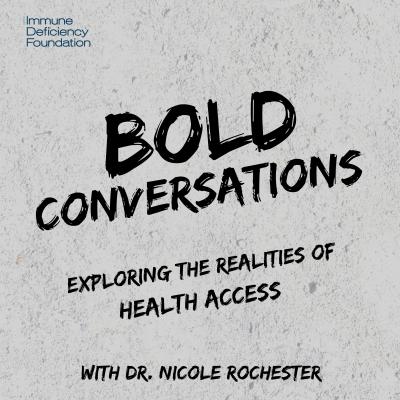
Are those with primary immunodeficiency (PI) who report better health diagnosed significantly differently than those who report poor health? A recently published study based on survey data collected by the Immune Deficiency Foundation (IDF) provides insight into that question.
The study explores patients’ self-reported health as they move through the stages of experiencing symptoms, seeking care, finding a diagnosis, and receiving treatment.
“Patients suffer from an extensive list of health conditions, including an increased susceptibility to infections, autoimmune diseases, and malignancies. However, each patient’s journey is unique, and surveys have shown a wide variance in how patients perceive their overall health,” according to the study.
“Looking at perceived health allows us to analyze the importance of different variables and their distinct impact on health outcomes for IEI patients.”
The study shows that age at diagnosis, time between symptom onset and diagnosis, number of clinicians seen, and whether the diagnosis was made in the first five years of life impact the health status of people with PI. Key findings obtained through the survey included:
- Patients diagnosed before age 12 (207 patients) had a significantly better reported mean health status than those diagnosed later (900 patients).
- Patients diagnosed within 10 years of symptom onset (413 patients) showed significantly improved health status versus those diagnosed more than 10 years after symptoms started (524 patients).
- Patients with symptom onset during the first five years of life who received a diagnosis (275 patients) reported a significantly improved health status versus others (108 patients) who had symptom onset in that timeframe and didn’t receive a diagnosis.
- The number of clinicians seen before diagnosis significantly impacted health status, with fewer clinicians leading to better outcomes.
Researchers extracted data for the study from a 2017 IDF Patient Survey, developed by IDF, with input from the IDF Medical Advisory Committee (MAC). The survey asked patients and caretakers questions related to diagnosis, such as time to diagnosis, type of diagnosis, doctor who assisted with diagnosis, and reason for testing; comorbidities like fatigue, chronic conditions, and infections; general health, physical limitations, specialists, hospitalizations, and insurance; mental health including specialist visits and prescription medications for anxiety, stress, or depression; and treatments.
Survey data allowed researchers to conclude that “efficient, rapid, and early-life PI identification should improve patient-reported health and relevant outcomes,” and that “improvements appear to be independent of the clinician specialty ultimately making the PI diagnosis.”
“We know this information anecdotally, but to put it in actual data, to do the statistical analysis, and then to be able to publish it is entirely different than anecdotal evidence,” remarked Christopher Scalchunes, IDF vice president of research.
IDF regularly conducts patient surveys that result in published research studies and act as sources of information for other researchers to use in their own studies on PI. The data also guides IDF’s work in programming, policy initiatives, education for clinicians and patients, and research projects. Patients and family members may also use the data to make better decisions on managing their health and their healthcare.
“Since 2007, IDF has produced about two dozen peer-reviewed publications that have been cited hundreds of times by other researchers, used for advocacy on Capitol Hill and in state legislatures, used to inform payers, and used by developers of the treatments for our patients to understand the gaps in treatment satisfaction and make improvements,” said Scalchunes.
“The surveys aren’t about just collecting data. They are about taking the response of each individual who responds to the survey and leveraging that data to inform practice.”
IDF is currently working on publishing data from a 2023 national patient survey that provides a comprehensive snapshot of the PI population. It details diagnoses and time to diagnoses; patient demographics including sex, age, race, income, employment status and education; healthcare providers visited; infections and other health issues; and types of treatments.
“The more important message is, why do we do these surveys? It’s because on a national scale, no one else is collecting data on patient-reported outcomes, issues, and challenges that are faced by the IEI community. If IDF doesn’t do it, then who will?” asked Scalchunes.
“That’s why it’s incredibly important for people to participate in the surveys when they get a request. People who respond to our surveys are making a difference because they are advancing our understanding and discoveries.”
Sign up for updates from IDF
Receive news and helpful resources to your cell phone or inbox. You can change or cancel your subscription at any time.












